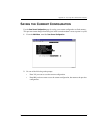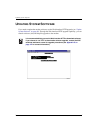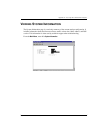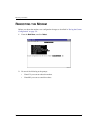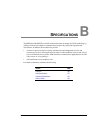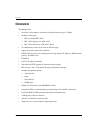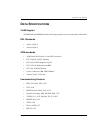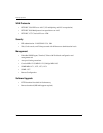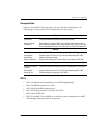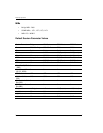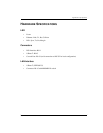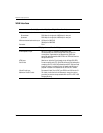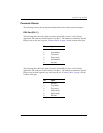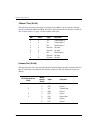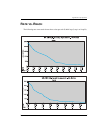
Appendix B: Specifications
MM701G and MM702G User Manual 139
Encapsulation
When you activate RFC 1483 system mode, you can select WAN encapsulation as VC
multiplexing for some sessions and LLC encapsulation for other sessions.
RFCs
• RFC 1483 Multiprotocol Encapsulation over ATM (Bridging/Routing)
• RFC 2364 PPP Encapsulation over ATM
• RFC 1994 for PAP/CHAP Authentication
• RFC 1631 IP Network Address Translator (for NAPT)
• RFC 1350 for TFTP client
• RFC 2131 and RFC 2132 for DHCP server and relay protocols (supported only in RFC
1483 Bridging mode) and extensions, respectively
PPP
Authentication
(PAP/CHAP)
Provides authentication of PPP sessions for security through Password and
Challenge-Handshake Authentication Protocols (RFC 1994).
Network Address
Translation
Network Address Translation (NAT) maps LAN side private IP address to the
public IP address assigned to the 32 virtual channels (RFC 1631). You can map
to two private addresses to each of the 32 sessions for a total of 64 addresses.
Routing
Routing Protocol Supports RFC 1724 Routing Information Protocol (RIP and RIP Version 2).
Encapsulation Supports Logical Link Control (LLC) or VC-based multiplexing (RFC 1483).
Static Routes Supports up to 32 static routes.
Address Resolution Supports Address Resolution Protocol (ARP) over the LAN port (RFC 826).
Bridging
Bridging and Address
Learning
Implements a transparent learning bridge with a bridging table of 1024 entries.
Encapsulation Supports Logical Link Control (LLC) or VC-based multiplexing (RFC 1483).
Spanning Tree Provides Spanning Tree support per IEEE 802.1d.



